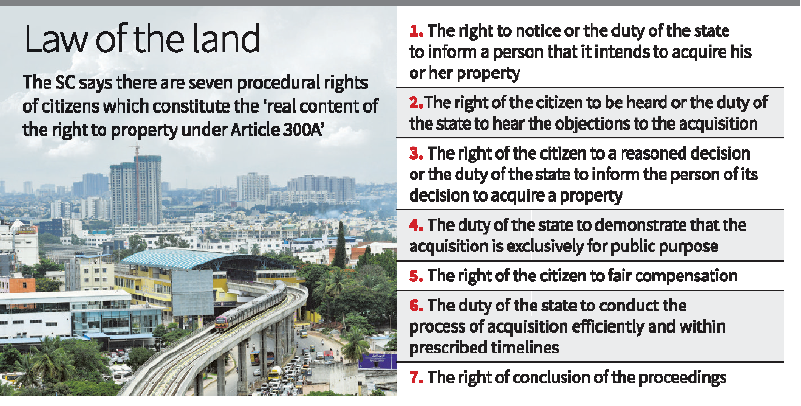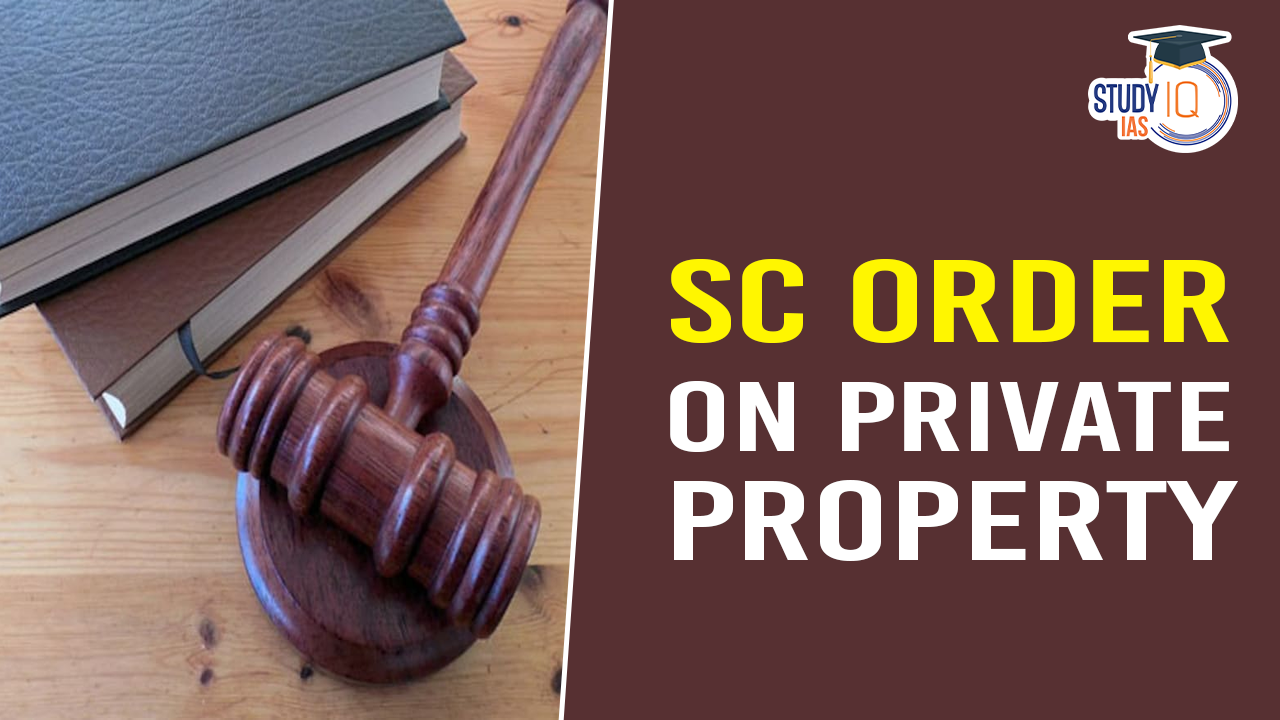Table of Contents
Context: The Supreme Court reinforced the protection of private property from arbitrary state acquisition by ruling that compulsory acquisition without following mandatory procedures is unconstitutional, even if compensation is provided.
Supreme Court Limits State’s Power to Seize Private Property, Overturns 1978 Ruling
In a landmark judgment on November 5, 2024, the Supreme Court ruled that the State cannot broadly seize private property by classifying it as a “material resource of the community” under Article 39(b) of the Constitution. The nine-judge bench, led by Chief Justice D.Y. Chandrachud, delivered a 7:2 majority decision, clarifying that only specific resources deemed essential for the “common good” could be redistributed by the State—not all privately-owned assets.
This ruling overturns previous interpretations rooted in socialist principles, which granted the State greater power to take over private properties. The decision responded to challenges against Article 31C, which provides constitutional protection to laws enacted under Articles 39(b) and (c), permitting State acquisition of resources to serve social welfare. The bench held that categorizing all private property as communal resources would be “far-fetched” and might discourage investors due to concerns about limited protection for their assets.
While seven judges supported this majority opinion, Justice B.V. Nagarathna offered partial disagreement, and Justice Sudhanshu Dhulia dissented entirely. This significant ruling reaffirms property rights in India and sets new boundaries on State intervention in private ownership.
SC Judgement on Private Property Details
- The court emphasised that the right to property is not only a constitutional right but also a human right.
- The bench clarified that mere possession of the power of eminent domain (the state’s power to acquire private property for public use) and compensation do not make acquisition constitutional. Mandatory procedures must be followed.
- The court stated that acquisition is incomplete without the state taking actual physical possession of the land, regardless of compensation payment.
High Court Order Upheld
- The judgement upheld a Calcutta High Court order against Kolkata Municipal Corporation.
- The corporation’s appeal defending its acquisition of private land was rejected.
- The court ordered the corporation to pay ₹5 lakh as costs within 60 days.
Constitutional Amendments and Article 300A
- The 44th Constitutional Amendment removed the right to property as a fundamental right.
- Article 300A, inserted simultaneously, states that no person shall be deprived of property except by authority of law.
- The bench clarified that “authority of law” includes adherence to prescribed procedures and is not limited to eminent domain.
Procedural Rights and the Real Content of Article 300A

The court outlined seven procedural rights of private citizens, forming the core of the right to property under Article 300A:
- Right to Notice: The state must inform the person of its intent to acquire their property.
- Right to be Heard: The state must hear objections to the acquisition.
- Right to a Reasoned Decision: The state must inform the person of its decision with reasons.
- Public Purpose Justification: The state must demonstrate that the acquisition is for a public purpose.
- Right to Fair Compensation: The person must receive fair compensation.
- Efficient Process Conduct: The state must conduct the acquisition process efficiently and within prescribed timelines.
- Conclusion of Proceedings: The acquisition process must culminate in the vesting of property, including taking physical possession.


 Revised Detention Policy Implemented by ...
Revised Detention Policy Implemented by ...
 Indus Water Treaty 1960 Suspended by Ind...
Indus Water Treaty 1960 Suspended by Ind...
 5 Years of SVAMITVA Scheme and Its Benef...
5 Years of SVAMITVA Scheme and Its Benef...





















